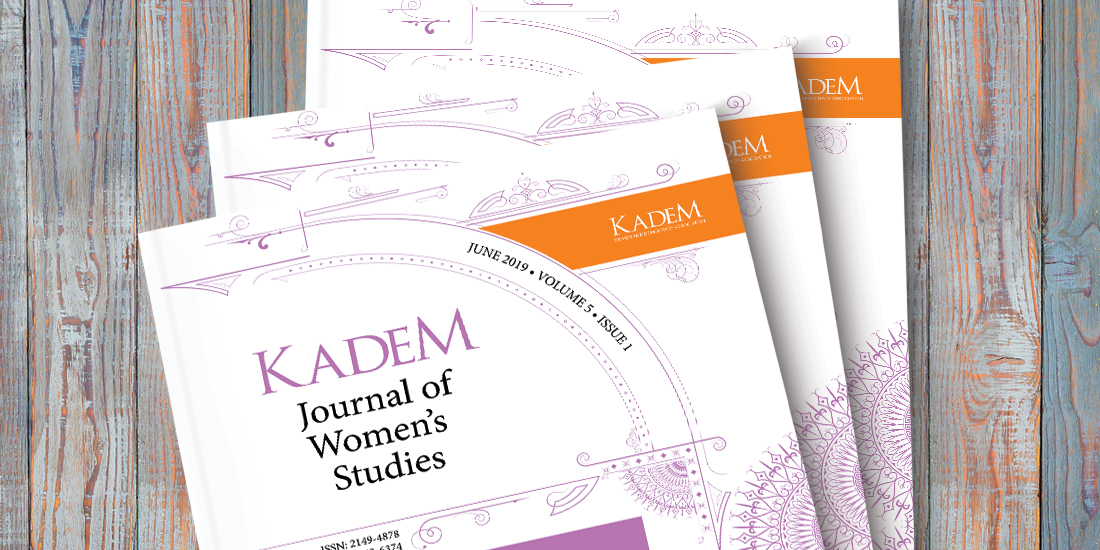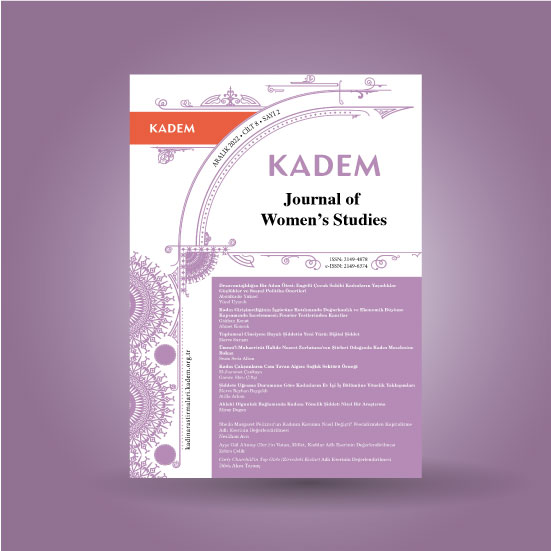
Ninth Issue of Journal for Women’s Studies is Released
July 16 2019, Istanbul
Ninth issue of Journal for Women’s Studies, the official, peer-reviewed and periodical academic publication of the Women and Democracy Association (KADEM), is now published.
Being a peer-reviewed, academic journal, KADEM Journal for Women’s Studies has successfully established a reputation for itself in the sector as a scientific initiative that aims at going beyond uniform interpretation of women’s issues and, for this purpose, provides a stepping stone to different discourses, interpretations and theoretical approaches in the area of women’s studies. Furthermore, it also aims at contributing to shaping of the policies on women by paving the path for quality debates and studies.
In the ninth issue of KADEM Journal of Women’s Studies, Prof. Dr. Beylü Dikeçligil, teaching fellow at Istanbul Gelisim University Sociology Department, answers some much-anticipated questions about women and family.
The first article in the journal is entitled “Analysis of the Effects of Psycho-Educational Program to Reduce Violence (ŞAPP) on the Hostility, Emotion Management and Relationship Self-Sufficiency Levels of Men Who Commit Violence Against their Wives”, which is co-authored by Yunus Akan and Binnaz Kıran. In this research which was performed by using quasi-experimental research design, a study was conducted on 52 male convicts who were serving their sentences at Mersin Probation Centre, in order to test the effects of the developed program on reducing the hostility of men who commit violence against their wives and improving their emotion management skills and relationship self-sufficiencies.
The second article is entitled “Effects of the Corporate Structure in the Middle East and North Africa on the Women’s Participation Rate in Labour Force”, authored by Tahsin Yamak, Emre Saygın and Adem Gök. In this study, the authors aimed at analysing the effects of corporations in the Middle East and North Africa on employment of women. The third article presented in the journal is entitled “Analysis of the Mental, Domestic and Environmental Issues of Women who are Addicts”, authored by Başak Ünübol, Elif Çinka, Rabia Bilici and Seyhan Hıdıroğlu. In this study, the authors intended to identify the underlying environmental, domestic and mental reasons for women’s alcohol and substance use, via interviews they conducted on the focus group, and to determine the personal and environmental factors in their treatment process.
Another article in the journal belongs to Melih Sever, which is entitled “Becoming Stronger in Chaotic Times: An Analysis of the Narratives of a Mother about Leukaemia and Stem Cell Transplantation”. The study uses narrative analysis and the obtained narratives have been analysed in terms of the effects of the social context on families, identity creation, exploration of meaning, fighting against diseases and the reflections on family. The last article of the journal features the study co-authored by Alev Fatoş Parsa and Zuhal Akmeşe, which is entitled “Social Media and Child Abuse: Example of Instagram Moms”. This study presents a critical analysis within the framework of commodification of children, by analysing the social media profiles of the sample group that is defined as Instagram moms.
In the book reviews section, the first review is by Derya Eren who discusses the book authored by Carol J. Adams, titled “The Sexual Politics of Meat: A Feminist-Vegetarian Critical Theory”. Secondly, M. Numan Sağırlı reviews the book “Do Muslim Women Need Saving?” authored by Lila Abu-Lughod. This section is concluded with Zehra Zeynep Sadıkoğlu’s review of the book authored by Elizabeth Badinter, entitled “The Conflict: How Modern Motherhood Undermines the Status of Women”.
KADEM Journal for Women’s Studies is available on TUBITAK (The Scientific and Technological Research Council of Turkey) ULAKBIM Social Sciences and Humanities Database. TUBITAK ULAKBIM establishes an education and research network, which is interactive and open to new technologies, and connects corporate users to each other as well as to global computer networks.


